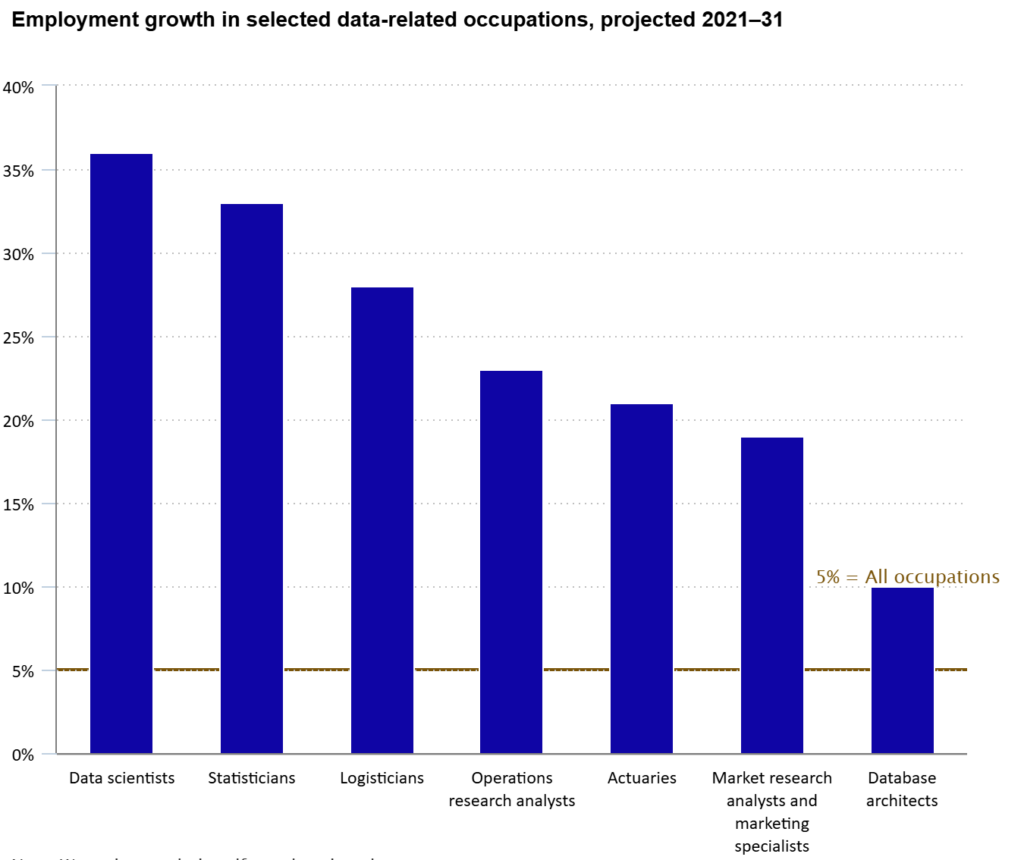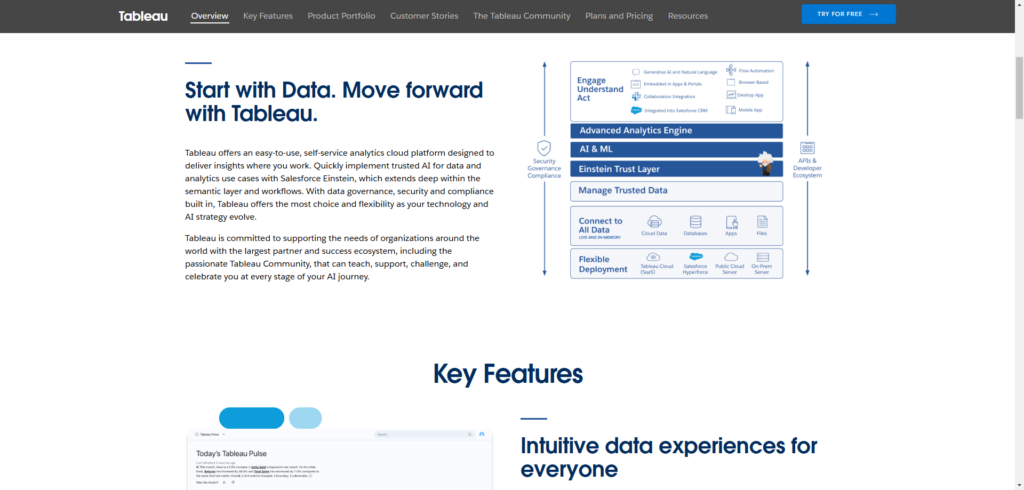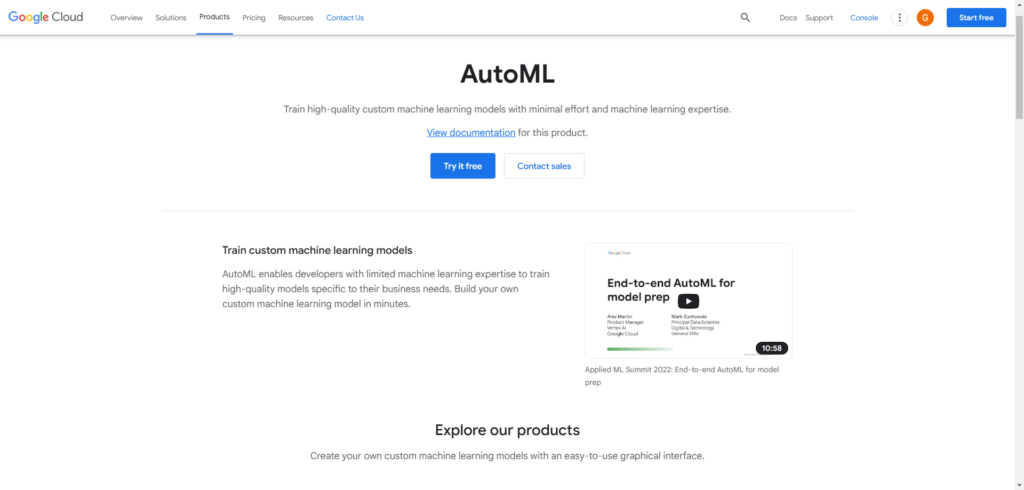Will AI Replace Data Scientists? Challenges and Opportunities
Table of Contents
As artificial intelligence (AI) continues to develop, a common question arises: will AI replace data scientists? Despite the rapid advancements in automation and machine learning, AI is unlikely to fully replace data scientists. Rather, AI is enhancing their work, especially in automating repetitive tasks and analyzing vast datasets. This enables data scientists to focus on high-value work such as creative problem-solving, strategic decisions, and domain-specific analysis—areas where human expertise is irreplaceable.
In this article, we’ll explore AI’s impact on data science, the areas where human expertise remains essential, and the future outlook for data scientists as AI evolves.
Why AI Won’t Fully Replace Data Scientists
Despite AI’s impressive capabilities, there are several crucial human skills that it cannot replicate, especially in data science:
- Critical Thinking and Contextual Understanding: Data scientists apply domain-specific knowledge to interpret data within real-world contexts. While AI can process large volumes of data, it cannot always understand the nuanced environments or complex decision-making that data scientists handle daily.
- Complex Problem Solving: AI struggles with ambiguity and complex problem-solving that requires creativity, interdisciplinary knowledge, and outside-the-box thinking. Data scientists often face non-routine problems that demand innovative approaches, something AI lacks.
- Ethics and Governance: Data scientists are responsible for ensuring ethical practices, navigating privacy issues, and addressing biases in data. AI, while able to identify patterns, cannot make ethical judgments or oversee governance in ways that are necessary for responsible AI use.
- Collaboration: Data scientists play a key role in collaborating with business teams to align technical insights with strategic goals. Their communication, leadership, and decision-making abilities are essential for bridging the gap between data analysis and business strategy—skills AI cannot replicate.
How AI is Transforming the Role of Data Scientists
Rather than replacing data scientists, AI is transforming their roles by improving efficiency and expanding their responsibilities. AI handles time-consuming tasks such as data cleaning, model selection, and basic statistical analysis, which allows data scientists to focus on more high-level tasks such as complex problem-solving, innovation, and aligning data-driven insights with business objectives.
Moreover, the integration of AI tools creates new roles in data science. Positions such as AI Ethics Officers, Machine Learning Engineers, and Data Privacy Experts are becoming increasingly vital. These professionals are essential in ensuring that AI technologies are deployed responsibly and ethically. Their work will bridge the gap between technical AI implementation and business strategy.
As AI evolves, data scientists will need to continuously update their skills. Emerging fields like machine learning, AI ethics, and advanced analytics will become integral to their skill sets, ensuring that they remain at the forefront of technological advancements.
The Future Outlook for Data Science Careers
The future for data scientists looks promising. According to the U.S. Bureau of Labor Statistics, the job growth for data scientists is expected to rise by 31% through 2030, far outpacing the average growth rate for all other occupations (BLS Job Growth Projections). This increase is driven by industries like healthcare, finance, and retail, where data-driven decision-making is becoming increasingly crucial.

New roles in AI governance, machine learning engineering, and data storytelling are emerging. Data scientists who adapt to these shifts will play a central role in overseeing AI applications, bridging the technical-business gap, and ensuring that ethical and privacy standards are upheld.
To stay competitive, data scientists must continue to evolve their skills, particularly in AI, machine learning, and advanced analytics. The demand for these capabilities will only grow as AI becomes further integrated into data science workflows.
Challenges and Opportunities for AI in Data Science
AI brings both opportunities and challenges to the data science field. Its integration enhances productivity by automating routine tasks, but several challenges must be addressed:
- Data Dependency: AI systems rely heavily on the quality of the data they are trained on. Poor-quality or biased data can lead to unreliable models and skewed results. Ensuring high-quality, unbiased data is a significant challenge for AI in data science.
- Lack of Creativity and Contextual Understanding: AI lacks the human creativity and contextual understanding required to tackle complex business problems. It struggles with applying domain-specific expertise, which remains a vital part of data science.
Opportunities:
- Augmented Analytics: AI-powered analytics tools like Tableau make data processing more efficient, enabling data scientists to focus on strategic decision-making and generating business insights.

- Generative AI and AutoML: Technologies like Google AutoML simplify tasks like model selection, which expands their capabilities and opens up new possibilities for innovation in the field.

While AI can enhance the data science field, overcoming its limitations and addressing challenges such as data dependency will be key to maximizing its potential.
Find Out Jobright: AI-Powered Job Search Made Easy
Jobright is an AI-powered platform that simplifies job searching. With just a few inputs, users can have personalized, professional cover letters that highlight their skills and experiences in line with the job they are applying for. This feature saves time and ensures that each application stands out to potential employers. Whether you’re applying for your first job or seeking a career change, Jobright’s AI-powered cover letter generator offers the efficiency and customization needed to increase your chances of landing that interview.
Struggling to Craft Your Story?
Get Personal Cover Letter Tips on Jobright.ai
Leverage Our AI Co-pilot Orion and receive personalized cover letter inspiration for every position
Try Orion for FREEConclusion
In conclusion, AI will not replace data scientists. Instead, it will complement their work by automating repetitive tasks and enabling them to focus on more complex and strategic problems. The future of data science lies in a partnership between AI and human expertise. Data scientists will continue to apply their domain knowledge, creativity, and critical thinking to solve intricate challenges, while AI will handle the tasks that require automation and large-scale analysis. Data scientists who embrace AI and continuously adapt by acquiring new skills in machine learning and AI technologies will continue to thrive in this evolving field. The intersection of human expertise and AI promises a more efficient, dynamic, and impactful future for data science.

